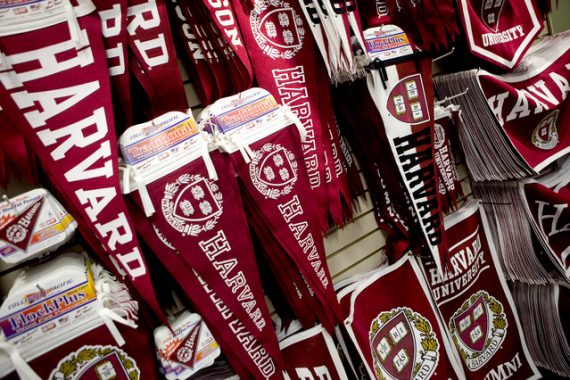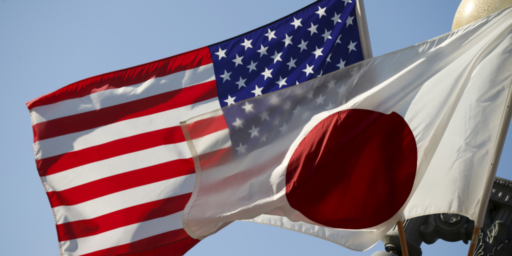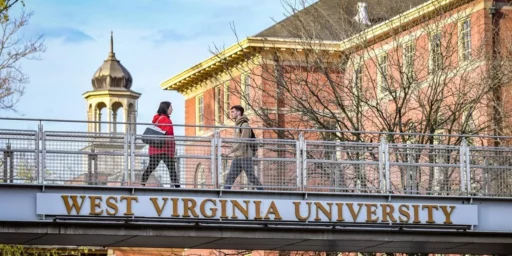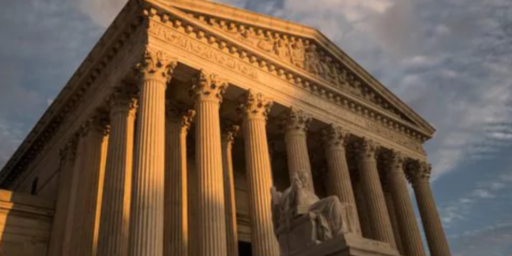World’s Top Universities
Seven of the top ten and fifteen of the top twenty universities on the planet are American.
Seven of the top ten and fifteen of the top twenty universities on the planet are American.
CSM (“World rankings: top 10 universities around the globe“):
Britain’s leading higher education publication, The Times Higher Education, today released its 2012 reputation rankings for universities worldwide.
Only three countries are represented in the top 10 – Japan, the United Kingdom, and the United States – with Canada, Switzerland, Singapore, and China landing institutions in the top 30. Hong Kong, Germany, and Australia squeezed into the top 50, and India once again fared poorly in the rankings, not even registering in the top 100.
Nearly 31,000 academics from 149 countries have contributed to the Academic Reputation Survey since it was launched in 2010. To build the rankings, senior academics from a range of disciplines weigh in on which universities they see as the strongest in teaching and research in their respective fields.
The rankings are no doubt subjective, relying on the perspectives of career academics on a predetermined list of 6,000 universities, but Times notes that in an increasingly globalized education market, “esteem does matter,” helping institutions retain top talent and giving the degrees of alumni more weight.
REPUTATION RANK |
INSTITUTION | COUNTRY / REGION | REPUTATION |
|---|---|---|---|
| 1 | Harvard University | United States |
100.0
|
| 2 | Massachusetts Institute of Technology | United States |
87.2
|
| 3 | University of Cambridge | United Kingdom |
80.7
|
| 4 | Stanford University | United States |
72.1
|
| 5 | University of California Berkeley | United States |
71.6
|
| 6 | University of Oxford | United Kingdom |
71.2
|
| 7 | Princeton University | United States |
37.9
|
| 8 | University of Tokyo | Japan |
35.6
|
| 9 | University of California Los Angeles | United States |
33.8
|
| 10 | Yale University | United States |
32.4
|
| 11 | California Institute of Technology | United States |
29.6
|
| 12 | University of Michigan | United States |
23.2
|
| 13 | Imperial College London | United Kingdom |
22.2
|
| 14 | University of Chicago | United States |
21.0
|
| 15 | Columbia University | United States |
20.7
|
| 16 | Cornell University | United States |
20.0
|
| 16 | University of Toronto | Canada |
20.0
|
| 18 | Johns Hopkins University | United States |
17.8
|
| 19 | University of Pennsylvania | United States |
16.3
|
| 20 | Kyoto University | Japan |
15.9
|
Aside from the predominance of US institutions on the list, what strikes me here is the different between the international consensus and my own sense of the prestige of these schools. Most of the top ten universities strike me as being worthy but I’d have thought Oxford and Yale would be much closer to the top of the list. Certainly, I think of Yale as being far more prestigious than UCLA, which is a consolation prize in its own university system. Further down the list, I don’t think of either Illinois or Washington as particularly high tier institutions; they’re certainly far, far below Duke, NYU, and Northwestern in domestic reputation–at least in the fields where I dabble (social sciences, public policy, and law).
For that matter–and here, I don’t claim any real expertise–I’ve for whatever reason thought McGill easily the most prestigious Canadian university. Here, though, it’s ranked below Toronto and UBC.







Top two are in Taxachusettes. Wonder how that happened. Perhaps quality investments in education?
Last fall Chinese academics at their university of Shanghai ranked Georgia Tech as the best engineering school in the world, assessments I think the Chinese pay quite a bit of attention to.
@James:
And they’re both private universities
@James: Public Higher Ed in Massachusetts actually gets the short end of stick a lot of time, because there is this attitude of “Well, we’ve got Harvard and MIT and BU and BC and Northeastern and Suffolk, etc., so there’s plenty of choices.” Mass also – unusually – doesn’t have a public law school, and thus doesn’t have many public higher ed alums in the Lege advocating for funds. Most of the state lawmakers went to one of the private law schools around Boston.
@James As @Doug Mataconis notes, they’re private institutions, not state schools. Harvard is the oldest university in the country and MIT is the oldest of our technical institutes. The fact that there are a crapload of major universities in the greater Boston area adds a certain synergy, too, as happened to a lesser extent with the Research Triangle in North Carolina much later.
I find UCSF’s ranking at #31 in the world, repuation wise, completely baffling. UC San Francisco has a better world reputation than UT Austin, Northwestern, Duke, NYU, Georgia Tech or Carnegie Mellon? Baffling.
Further down the list, I don’t think of either Illinois or Washington as particularly high tier institutions; they’re certainly far, far below Duke, NYU, and Northwestern in domestic reputation–at least in the fields where I dabble (social sciences, public policy, and law).
Well, you’re ignoring some important fields. Engineering, science, business, etc. For instance, Illinois is ranked in the top ten for every field of engineering (in undergrad and grad) by USNWR. They are ranked in the top twenty (and mostly top ten) for all the major hard science fields. They have a number of other highly ranked graduate fields, such as education (#22), library/info sciences (#1), psychology (#7), and political science (#21).
UW is similarly strong in engineering and many science fields. They also have top notch medical, nursing, computer science, education, public affairs, sociology, and library/info sciences programs.
I would also note that UIUC is ranked lower in this survey than Duke and Washington, and Washington beats only Northwestern (and they are basically tied). NYU primarily strong in a few related areas (business, law, public affairs, poli-sci, etc.).
But you need to look at the methodology to see why Northwestern is at #26 by TTHE but ranked #12 by USNWR. TTHE relies entirely on surveys of academics, while USNWR looks at student/faculty ratio, services, graduation rate, retention rate, and more in addition to surveys of academics and high school counselors.
@mantis: That’s sort of what I was hinting at: My own sense of how good schools are is overly influenced by their social science, public policy, and law programs. Obviously, a lot of the great engineering schools are also outstanding in those fields, so I think of MIT, Cal Tech, Georgia Tech, and others are top schools, period.
You probably need different lists for science/enginerring and humanities/social sciences, and possibly other lists for other disciplines as well. Within science/engineering, MIT is considerably more prestigious than Harvard, as is CIT and Cambridge.
In Canada there’s a magazine (Maclean’s) that does rankings that has McGill regularly come up on top, but it lists things like reputation, student housing and so forth; McGill is also a very good research university, but Toronto, UBC, and U of Alberta are as good in terms of research, at least in science and engineering. In the end, these rankings are always going to be pretty iffy, except as a general guideline.
@Doug Mataconis: I’m aware. I’m talking about the high school students that get into them.
I don’t think the list attacks any education problems where they live. It’s just a list of some qualified institutions which are also the centers of networking and cumulative advantage. Put another way, sure it’s nice that so many American schools are on the list, but it’s probably population related …
any top 20 list has 20 winners on it 😉
@James Joyner: As noted, I’m quite aware that they’re both private institutional. Quite a few of the in-state students that get into Harvard and MIT are products of public high schools.
To my way of thinking I would rate Stanford as the top university in the world, and I say that without reservations despite being an alumnus of its far loopier public-sector cousin and eternal rival across the Bay.
Not only does Stanford have preeminent programs in every conceivable discipline (including the “big four” of medicine, engineering, business and law) it’s a top athletic university to boot, regularly competing for and winning multiple titles each year in a major conference in various sports, which really is unfathomable if you think about it. Imagine if Harvard could compete for a BCS title or if MIT had a top-5 law school. Staggering. The campus. The area. The endowment fund. All first class. The epitome of higher education.
Heh, while being a graduate of one of these fine top 20 institutions, and it would be great to toot my own horn, I think these things are stupid. And I think mantis is on the right track.
Methodology screws these things up, and one mans civil engineering school can be great at u of x, but the mechanical engineering school be piss poor.
As a guy with BS and MS in Engineering, and an MBA I know such generalizations make no sense. Mantis is on the right track.
@Gromitt Gunn:
Well, Suffolk comes pretty close, no?
I always wondered if these comparisons really measured the “value” of the institutions or if it measured the aptitude of institutions to generate high scores in the scoring system.
On the national scene we know there are “stinky” things going on in that respect, which makes me a little suspicious of the American (or even Anglo-Saxon) dominance in this ranking.
Weird. My school (University of Auckland) didn’t even make it into the top 100, and I’ve never seen it below #50 in any other rankings.
It is worth noting that this is a poll of academic’s. There are surprises in all disciplines, universities can be world class in specific disciplines and very mediocre in others. It is mainly the research done at the universities that carry weight with academics so what may be a great school for undergraduates can be so-so in grad school.
That said, I am not surprised the UCLA rates higher than Yale. Yale and a lot of the Ivy leagues are overrated because of there proximity to the large population centers on the east coast. They are good schools and have been good schools for a long time and lots of people know that. But that does not mean they are world class in various research studies at this time. Also media types (I am looking at you Doug and James) overvalue liberal arts and under value science. I got a CompSci degree and in my world, MIT is big, as is Stanford, Berkeley, Illinois-Champlaign, UCSD, UCLA, you hear from Princeton some, even Harvard occasionally but never Yale.
As far as the University of Washington, the UW has been a good school for a while although stuck in the far upper left of the country, it does not get a lot of popular press. Both Paul Allen and Bill Gates have given boat loads of money to the UW (Paul Allens father was a librarian at the university). The money was primarily for bio-tech and science and it was used to really kicked up the research facilities to another level. In general the Seattle area is big medical research area with Fred Hutch and several bio-tech companies as well as the UW and there are several researchers from the UW that have won noble prizes for research that they did at the UW.
I was under the impression that Northwestern had a pretty good engineering program, too, and I agree that its domestic reputation exceeds Illinois’s and Wisconsin’s.
And as a graduate of the #12 school (Go Blue!), I should have probably known how to form the possessive form of Illinois without looking it up on the Internet …
I would hardly call UCLA a “consolation” prize in the system; shouldn’t that honor go to UC Santa Barbara? “Yes, it isn’t Cal, but it is in Santa Barbara!”
UCB is the big bear of the UC system, of course, but UCLA is hardly second rate. It has a completely different culture and set of priorities and strengths than Cal, and the schools complement one another and both enhance the reputation of the UC system. Either one would be a crowning jewel in any other state’s public university system, and they have both earned their prestige.
But, in spite of all that, I always find these lists amusing, but this one particularly so. This is a list of top universities based on perceptions of other academics. This feels pretty circular to me.
I meant to point out that Berkeley has nothing comparable to UCLA’s medical center, so that’s one area where UCLA is the stronger school. There are others, but health care specialties (medicine, public health, dentistry, and occupational health) is one area where UCLA has a clear advantage over UC Berkeley.
I must have gotten distracted thinking about Santa Barbara.
@James:
Harvard and MIT have just been around for a very long time because Mass. was settled for California or Texas.
In addition, what percentage of the students at Harvard or MIT actually come from Mass.?
@James:
I believe that Harvard is over 50% private school alumni. In addition, out of the top 100 high schools that send students to Princeton, Yale, or Harvard, only three are public high schools and none of those three are in Mass.,
@superdestroyer:
Harvard and MIT have just been around for a very long time because Mass. was settled for California or Texas.
That’s true of Harvard, but not MIT. MIT was founded in 1861. Texas became a state in 1845 and California in 1850, and both had been settled for a long time.
@superdestroyer: I’m also unsure how an institution’s age relates to it’s quality.
@James: There’s actually a massive first mover advantage. Harvard, Yale, and several of the other early starters were enormously prestigious before most of the 50 states were established. Ditto, say, the schools in my current state, Virginia, versus those of, say, Alabama. UVA and William and Mary were around a long time before the University of Alabama. There are only a handful of schools on the list west of the Eastern Seaboard–and most of them are in Chicago and California, which have enormous wealth and population concentrations.
@James Joyner: In the context of prestige, I certainly see (and agree with) your point. However, I went to public high school right next to Harvard, and my father is employed by the institution. Harvard is Harvard not because it’s old (although that helps) but because they employ the best faculty they can find, and offer undergraduates some of the best resources in the nation.
Moreover, public schools in the Boston metro region (although unfortunately less so in the city itself) are high quality because residents and their elected representatives place a high premium on giving all students a quality education, and are willing to finance that through property taxes. I can recall at least a half-dozen times where property tax override referendums passed because residents are concerned that their and their neighbor’s children are getting a quality public education.
@James: Oh, no doubt. Harvard’s a great, great school. But it has a much easier time attracting the best professors and students precisely because it’s Harvard. And those students go on to make a ton of money and donate back to the school, ensuring an endowment so big that they can spend lavishly just off the interest. And give huge financial aid to great students. It would be really, really hard for them to screw it up.
The high prestige of, say, Duke or Stanford is in may ways more impressive since they had to compete against so many established schools to get to where they are.
@James Joyner: That’s a fair point. A number of my classmates went to Harvard for undergraduate and/or graduate school. A lot of what Harvard offers students, aside from the quality facilities and faculty, is the name.
MIT has an interesting online education program I am thinking about taking some classes from. It is just getting off the ground, there should be a larger course offering this fall.
http://mitx.mit.edu/
Not a single one in a red state.
Quel surprise.
@superdestroyer: Yes, but then why are they so much more highly rated than places like the University of Bologna?
(I find it amusing that I’ve attended three of the universities on the list. Still haven’t founded a multi-billion dollar corporation yet, which shows how much of a load of dingo’s kidneys all of this hoopla is.)
UCLA is the direct rival of UC Berkeley within the UC system by the usual measures such as average SAT or number of Nobel Laureates.
The “consolation prize” of the UC system is UC Merced, followed by UC Riverside and UC Santa Cruz.
(note: I am a UT Austin/ Caltech grad. Just want to set the record straight).
@michael reynolds: Mostly a matter of age of institutions, I’d say. Texas, North Carolina, and Georgia are all represented in the Top 50 and the University of Virginia is a glaring omission. Not to mention that California, which has several entrants, was a “red state” as recently as 1988.
@Tylerh: Oh, UCLA is a great university. But it’s usually viewed as being in a separate class from Berkeley and Stanford, both of which are always in the discussion for Top 6 status. I tend to think of UCLA as in the same tier as, say, Duke or UVA.
@James Joyner:
Interesting though that NC is in the liberal stronghold of Chapel Hill and UT is in Austin. It seems there’s something incompatible between conservative politics and respected institutions of higher learning.
@James Joyner:
Yea. I must say that UVA not being on the list when UCLA is makes no sense to me at all
I’m sorry, but I would find Merced far less consoling than Santa Barbara.
@Drew:
What was the year you got your Nobel?